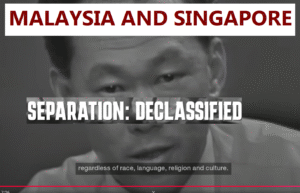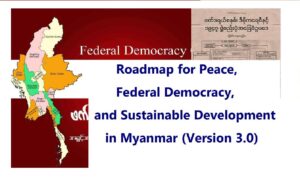Submission to the Constitutional Drafting Committee
Title: Proposed Constitutional Rights for Myanmar Muslim Minorities
Submitted by: Dr. Ko Ko Gyi @ Abdul Rahman Zafrudin
Date: [08.08.2025]
Professional Affiliation: Medical Doctor (Non-Legal Contributor)
Contact Information: [Withhold for this public publication]
Executive Summary
This submission presents a preliminary framework for the constitutional recognition and protection of Myanmar’s Muslim minorities and other religious groups. It is intended to serve as a foundational reference for the drafting of an inclusive, democratic Constitution that upholds international human rights standards and reflects Myanmar’s pluralistic heritage.
The proposed rights are informed by:
- The Universal Declaration of Human Rights (UDHR)
- The International Covenant on Civil and Political Rights (ICCPR)
- UN Conventions on Minority Rights
- Comparative constitutional models from Malaysia, Singapore, and Thailand
- Historical contributions of Myanmar’s Muslim communities to national development
This document is not a legal treatise but a civic initiative. It is submitted with humility and the hope that legal experts, religious scholars, and constitutional practitioners will refine and expand upon its contents.
I. Rationale for Minority Protections
Myanmar’s post-independence history has been marked by systemic exclusion of religious and ethnic minorities, particularly Muslims. The politicization of religion and nationalism has undermined democratic principles and led to widespread discrimination.
Key historical precedents include:
- General Aung San’s opposition to Buddhism as a state religion
- Sayagyi U Razak’s affirmation of Muslim integration into the national identity
- The betrayal of minority trust through exclusionary policies and practices
This submission calls for enforceable constitutional guarantees that protect minority rights and promote national unity.
II. Proposed Constitutional Framework
A. Citizenship and Identity Rights
- Legal recognition of all ethnic and religious minorities as full citizens
- Access to national identity documentation, including:
- Birth Certificates
- National Registration Cards (NRC)
- Family Registration Lists
- Passports
- Right to self-identify ethnically (e.g., Myanmar Muslim, Rohingya, Pathi, Kaman, Panthay)
- Prohibition of race/religion-based exclusion from citizenship or documentation
B. Civil and Political Rights
- Universal suffrage and eligibility to contest elections at all levels
- Minority representation in:
- Local councils
- Township and district administrations
- Regional and national legislatures
- Proportional representation mechanisms
- Anti-discrimination protections in:
- Government services
- Civil service, military, police, and education sectors
C. Religious and Cultural Rights
- Freedom of religion and religious propagation
- Legal protection for:
- Construction and renovation of mosques and madrasas
- Religious education in native and national languages
- Recognition of Islamic personal and family law (marriage, divorce, inheritance) as customary law
D. Education and Employment Equality
- Equal access to:
- University admissions
- Government scholarships
- Civil service and military recruitment
- Right to establish:
- Muslim professional associations
- Student and youth organizations
E. Social and Humanitarian Rights
- Right to form:
- Islamic welfare societies
- Homes for the elderly
- Orphanages
- Humanitarian NGOs
- Protection of burial rights and cemetery access with mosque facilities
F. Protection Against Hate Speech and Violence
- Criminalization of:
- Hate speech and religious incitement
- Distribution of hate literature
- Proscription of extremist organizations (e.g., Ma Ba Tha)
- Enforcement of anti-discrimination laws:
- Ban on “Muslim-Free Zones”
- Prohibition of housing discrimination
G. Economic Equality and Mobility
- Equal rights to:
- Business ownership
- Internal migration and settlement
- Property and land acquisition
- Equitable access to:
- Government tenders
- Trade licenses
- Financial support and microfinance
H. Federal Models for Emulation
- Malaysia (Sabah/Sarawak):
- Cultural autonomy
- Revenue-sharing for local development
- Control over education and religious affairs
- Singapore:
- Secular legal framework with multi-religious protections
- Constitutional prohibitions against racial and religious discrimination
- Bangladesh: Protection and quotas for Minorities
III. Closing Statement
Myanmar’s Muslim communities have:
- Participated in anti-colonial struggles
- Served in national institutions
- Contributed to the country’s social and cultural fabric
They are not outsiders—they are citizens. It is imperative that the Constitution reflect this reality by enshrining their rights with dignity and equality. Only then can Myanmar fulfill its promise of becoming a democratic, united, and just nation for all.






